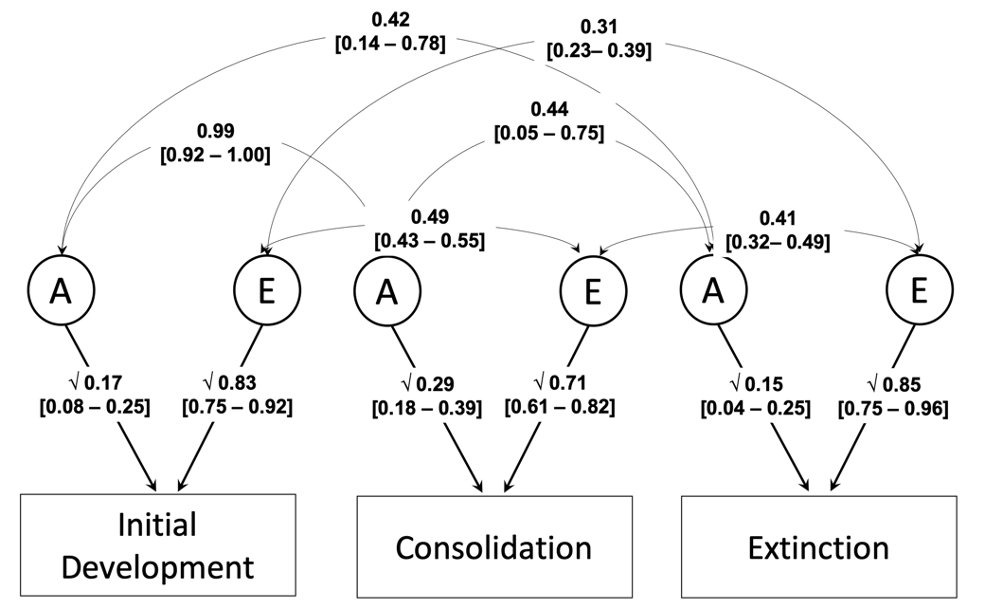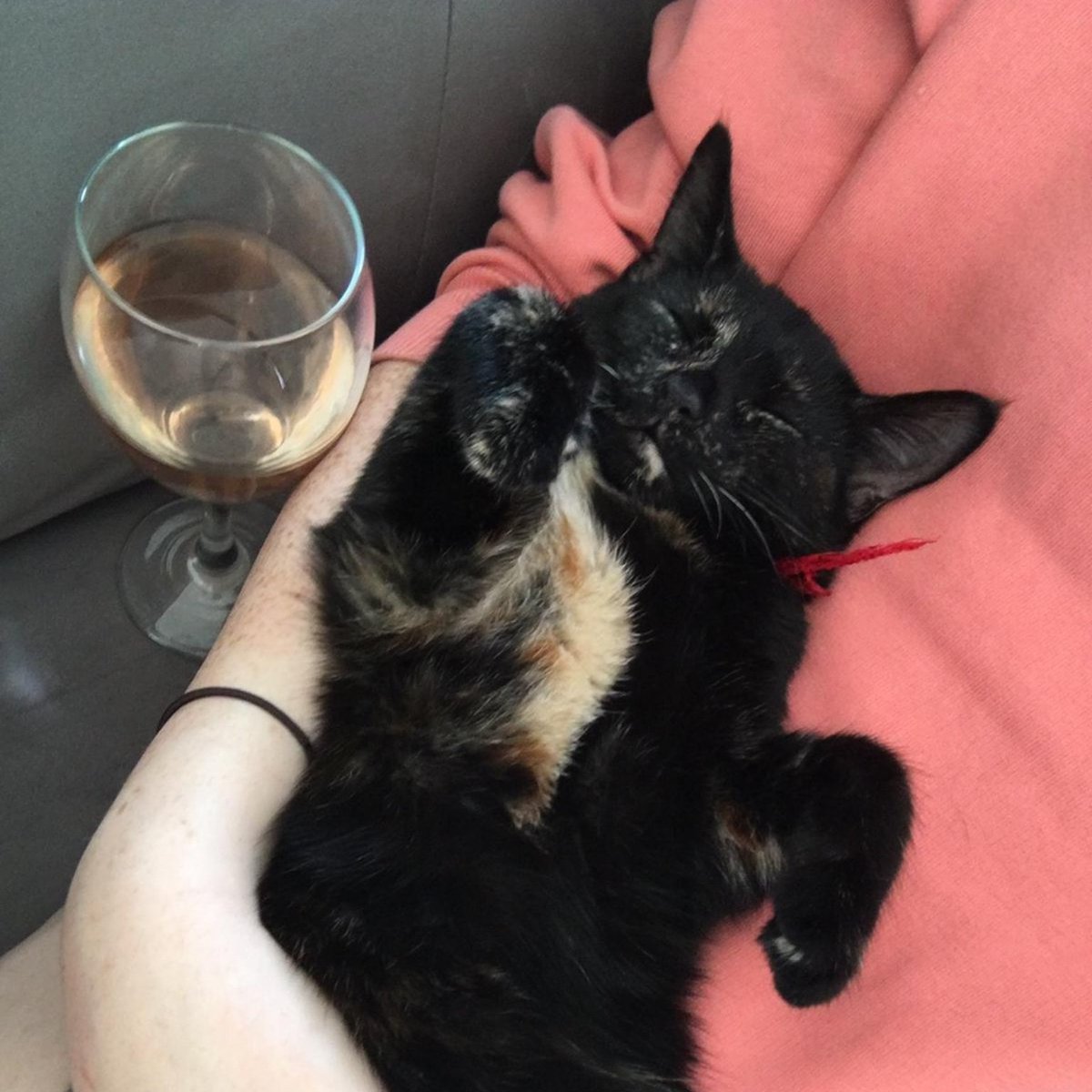My final piece of Christmas wrapping (up) - our newest preprint showing that fear acquisition and extinction are heritable and share some of the same genetic influences is up on bioRxiv! https://tinyurl.com/ydf54ql4 @T_J_McGregor @thaliaeley @psychgenomics @drkatieyoung 1/8
We have used the FLARe app (our validated smartphone app that delivers a fear conditioning experiment) to collect fear conditioning data remotely on ~2000 @TedsProject twins We used this data to do some multivariate twin modelling 2/8
We find that how well you learn to distinguish between two cues (one is paired with something aversive, and one is always safe) is heritable. The initial development of this learning is ~17% heritable and the later, more consolidated learning is ~29%~ heritable in our data 3/8
Extinction, or how well you learn that a cue is safe after seeing it repeatedly without anything aversive happening, is also heritable (~15% in our data). This is important because extinction models exposure-based therapies for anxiety 4/8
The really interesting thing here is that how well people learn fears, and how quickly they extinguish them share some, but not all, of the same genetic influences. These findings might be important for how we think about and research anxiety treatments 5/8
There are always limitations. An important one here is the novel remote delivery of the fear conditioning experiment. Quite a lot of people reported taking off their headphones so that they did not hear the aversive sound. These people tended to be more anxious. 6/8
With this limitation in mind, we think that this paper is a pretty exciting contribution to our understanding of the role of genetics and the environment in key learning processes linked to the development of anxiety. 7/8
Thanks as always to co-authors ( @kathrynlester1 @georginakrebs @T_J_McGregor @thaliaeley @psychgenomics @drkatieyoung and those not on Twitter (Michelle Craske, Tom Barry and Elena Constantinou). Also to the wonderful participants and @TedsProject team. 8/8

 Read on Twitter
Read on Twitter



